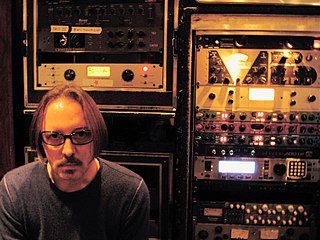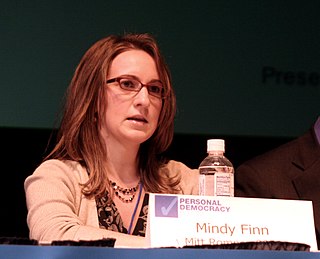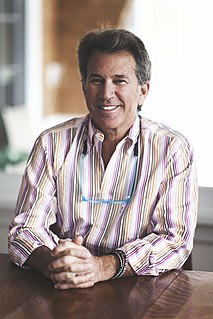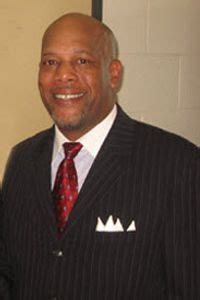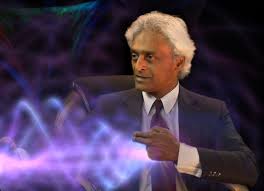Top 1200 Global Economy Quotes & Sayings - Page 20
Explore popular Global Economy quotes.
Last updated on November 17, 2024.
As our economy faces up to potential labour shortages due to our ageing population and as it moves to a new level of sophistication to compete with the rest of the world, we're going to need every Australian on board pulling their weight, rejoining the workforce, gaining new skills. Writing off individuals and communities suffering from poverty just creates a dead weight for our economy to drag along.
Global warming may be a 'crisis,' even 'the most pressing environmental problem of our time.' ... Indeed, it may ultimately affect nearly everyone on the planet in some potentially adverse way, and it may be that governments have done too little to address it. It is not a problem, however, that has escaped the attention of policymakers in the Executive and Legislative Branches of our Government, who continue to consider regulatory, legislative, and treaty-based means of addressing global climate change.
There are over 2 million cars standing in front of red lights with their engines going. Then we have over 2 million times approximately 100 horsepower being generated as they are idling there, so that we have something like 200 million horses jumping up and down and going nowhere. Now, we have to count that in our economy when we begin to get down to what is the efficiency of the economy.
When I say the economy is shrinking, it's the economy of the 99%, the people who have to work for a living and depend on earning money for what they can spend. The 1% makes its money basically by lending out their money to the 99%, on charging interest and speculating. So the stock market's doubled, the bond market's gone way up, and the 1% are earning more money than ever before, but the 99% are not. They're having to pay the 1%.
Getting global innovation projects right is really important as they create competitive advantage two ways. When the knowledge for an innovation is from different sites around the world, it's very much more difficult for competitors to copy these innovation - they'd have to access the same knowledge from the same places. Secondly, costs and time to market can be significantly reduced leading to first mover advantage through parallel development in global projects.
Now with the world being such a global community, the way the Internet has sort of leveled the playing field because you have so many things that are instantly accessible. It used to feel that way though, this outside pressure that you had to go to New York or LA or actually Nashville if you're into country music to succeed. But obviously we didn't and I didn't move to LA til after I had established us. I think it's easier for people to do it these days just because of the global world we live in.
One cannot walk into an April day in a negative way. With spring, each man's plans and hopes result in new efforts, fresh actions. All of which has a mighty important bearing on the economy. There are those of us who think that the psychology of man, each and together, has more impact on markets, business, services and building and all the fabric of an economy than all the more measurable statistical indices.
I think capitalism will not disappear, but it's going to increasingly not be the exclusive arbiter of economic life. It's going to have to find value in interacting with the sharing economy on many levels. And this hybrid system that's already emerging among millennials is going to be a mature system where, by midcentury, part of the day will be in the capitalist market, part of the day in the sharing economy, depending on your marginal costs.
Broadly speaking, Keynesianism means that the government has a specific responsibility for the behavior of the economy, that it doesn't work on its own autonomous course, but the government, when there's a recession, compensates by employment, by expansion of purchasing power, and in boom times corrects by being a restraining force. But it controls the great flow of demand into the economy, what since Keynesian times has been the flow of aggregate demand. That was the basic idea of Keynes so far as one can put it in a couple of sentences.
Well, certainly the Democrats have been arguing to raise the capital gains tax on all Americans. Obama says he wants to do that. That would slow down economic growth. It's not necessarily helpful to the economy. Every time we've cut the capital gains tax, the economy has grown. Whenever we raise the capital gains tax, it's been damaged.
We have won on the Arlov, Kursk, Belgorod, and Kharkov grounds. We won because the country was being defended not only by the army but by the entire Soviet people. The Socialist economy, Soviet political structure, and Marxist-Leninist ideology proved their unarguable excellence against the Fascist economy, Fascist political structure, and Fascist ideology of Germany.
I think the fact that our economy has changed dramatically over the last 20 years. It's a new economy that has really left some people behind but it has also leveled the playing field in way that has really provided access to women and people of every color, race, and creed to participate and thrive. So while that's not explicitly a women's issue, what it highlights is that women have more opportunities than they've ever had in this country.
Capitalism is very far from a perfect system, but so far we have yet to find anything that clearly does a better job of meeting human needs than a regulated capitalist economy coupled with a welfare and health care system that meets the basic needs of those who do not thrive in the capitalist economy. If we ever do find a better system, I'll be happy to call myself an anti-capitalist.
The United Nations remains the sole universal international organisation designed to maintain global peace. And in this sense it has no alternative today. It is also apparent that it should adapt to the ever-changing world, which we discuss all the time: how it should evolve and at what rate, which components should undergo qualitative changes. Of course, I will have to or rather should use this international platform to explain Russia's vision of today's international relations, as well as the future of this organisation and the global community.
One of the reasons why this country undertook military action in Iraq was that there are quite a few problems here, and perhaps attention needed to be deflected from those problems. It sometimes seems that the U.S. economy works successfully only if it gets a stimulus from the defense industry. So perhaps in addition to showing the power and the might of the United States internationally, another reason was to help the defense industry and to help the U.S. economy recover.
You got to have an enemy to fight. And when you have an enemy to fight, then you can unite the entire world behind you, and you seize power. That was Hitler's plan. His enemy: the Jew. Al Gore's enemy, the U.N.'s enemy: global warming. Then you get the scientists - eugenics. You get the scientists - global warming. Then you have to discredit the scientists who say, 'That's not right.' And you must silence all dissenting voices. That's what Hitler did.
The Democratic Party's problem is that voters don't believe the president's claims that the economy is thriving. Even people with jobs feel apprehensive. Paychecks are flat, growth anemic, and people are worried about their children's prospects. Mr. Obama had a 38% approval on handling the economy in the Sept. 9 Fox News poll. In the Sept. 7 NBC News/Wall Street Journal poll, 67% believe America is on the wrong track.
We have created new idols. The worship of the ancient golden calf (cf. Ex 32:1-35) has returned in a new and ruthless guise in the idolatry of money and the dictatorship of an impersonal economy lacking a truly human purpose. The worldwide crisis affecting finance and the economy lays bare their imbalances and, above all, their lack of real concern for human beings; man is reduced to one of his needs alone: consumption.
The US economy, because it's so energy wasteful, is much less efficient than either the European or Japanese economies. It takes us twice as much energy to produce a unit of GDP as it does in Europe and Japan. So, we're fundamentally less efficient and therefore less competitive, and the sooner we begin to tighten up, the better it will be for our economy and society.
We're in a very, very profound crisis. It's so obvious that no one in the power structure, either the corporate power structure or the political power structure, knows what to do or is willing to do what's necessary in relationship both to global war and global warming. It's so obvious that conditions are getting worse for the great majority of Americans. It's so obvious also that we face a very serious danger from people who feel, see themselves only as victims. And we have to somehow, in a very loving way, help the American people to recover the best that is in our traditions.
Obviously, if Christianity is going to survive as more than a respecter and comforter of profitable inquiries, then Christians, regardless of their organizations, are going to have to interest themselves in economy-which is to say, in nature and in work. They are going to have to give workable answers to those who say we cannot live without this economy that is destroying us and our world, who see the murder of Creation as the only way of life.
The white man is too intelligent to let someone else come and gain control of the economy of his community. But you will let anyone come in and take control of the economy of your community, control the housing, control the education, control the jobs, control the businesses, under the pre-text that you want to integrate. No, you outta your mind.
The money economy thus leaves a large ecological footprint, defined as the amount of land and resources required to meet a typical consumer's needs. For example, with only about 4% of the world's population, the United States, the largest money economy, consumes in excess of one-quarter of the world's energy and materials and generates in excess of 25 percent of the world's greenhouse gas emissions.
We know it (meat eating) is indisputably the number one cause of global warming. So what does it mean exactly to be an environmentalist on a daily basis if you are not thinking about the number one cause of global warming or one of the top two or three causes of all other environmental problems? Does it mean you are necessarily someone who doesn't care about the environment? Obviously not, but it might mean you have a blind spot for something big.
The bottom line for housing is that the concerns we used to hear about the possibility of a devastating collapse—one that might be big enough to cause a recession in the U.S. economy—while not fully allayed have diminished. Moreover, while the future for housing activity remains uncertain, I think there is a reasonable chance that housing is in the process of stabilizing, which would mean that it would put a considerably smaller drag on the economy going forward.
Money has to undergo a metamorphosis again, it has to relinquish its role in the market economy and engage in an economy of capacities. Then we would be concerned with human creative productivity. And we would come full circle, since each human being can then act within his company as co-creator of the future, can - in full dignity - contribute to shaping this future.
All of the easy oil is gone and what's left is requiring more energy and money and this has an effect on everything. Our problem is that we've created an infrastructure that's so dependent on oil. As oil becomes more expensive we're going to be locked into the transportation modes that our economy depends on. So we really need to start building an alternative economy before we get caught in a trap of our own making.
To change our national economic story from one of financial speculation to one of future growth, we need a third industrial revolution: a green revolution. It will transform our economy as surely as the shift from iron to steel, from steam to oil. It will lead us toward a low-carbon future, with cleaner energy and greener growth. With an economy that is built to last - on more sustainable, more stable foundations
There's the trope about an impending "global-warming encyclical." The pope is preparing an encyclical on nature and the environment, including the human environment (which includes the moral imperative of a culturally affirmed and legally recognized right to life from conception until natural death). So what happens? A low-ranking Vatican official for self-promotion gives an interview to the Guardian in which he claims that this is a global-warming encyclical - which he couldn't possibly have known, as the document wasn't drafted yet.
My experience to date has been that change, particularly relative to business, rarely happens in a revolutionary way. That isn't to say there are not times when major change happens, but my experience is that particularly when you're encouraging businesses to change of their own volition, the change is more slow over time. I don't think global trade is going to go away. I think it's unlikely that global trade and multinationals are not going to be around.
The misconception that there is serious disagreement among scientists about global warming is actually an illusion that has been deliberately fostered by a relatively small but extremely well-funded cadre of special interests, including Exxon Mobil and a few other oil, coal, and utilities companies. These companies want to prevent any new policies that would interfere with their current business plans that rely on the massive unrestrained dumping of global warming pollution into the Earth's atmosphere every hour of every day.
See, I am the mayor of Realville, and science is not up to a vote. It either is or isn't. Whatever it is, it is or isn't, but it's not up to a vote. Global warming doesn't exist because a "consequences of scientists" agree. Manmade global warming either is happening or it isn't, but it isn't up to a vote. But it is being presented to you as a consequences of scientists. Therefore, the science is not settled. Besides that, we all know that it's a hoax now. It's just some people don't want to accept that, but it is.
In a democracy the responsibility for the Government's economic policies, which so affect the economy, normally rests with the elected representative of the people: in our case, with the President and the Congress. If these two follow economic policies inimical to the general welfare, they are accountable to the people for their actions on election day. With Federal Reserve independence, however, a body of men exist who control one of the most powerful levers moving the economy and who are responsible to no one.
Getting the economy back on its feet is properly viewed as an investment in future prosperity. When businesses and consumers confront attractive investment opportunities, often the only way to seize them is by borrowing. The same is true for government. Contrary to the pronouncements of critics of economic stimulus, these investments will not impoverish our grandchildren. Continuing to allow the economy to languish in recession is the surest way to impoverish them.
Here's the problem - carbon dioxide doesn't contribute to smog and isn't a health threat. All of this is being done because some people believe carbon dioxide is causing global warming, and that preventing carbon dioxide from entering the air is the only answer. Never mind that there is still an ongoing scientific debate about global warming itself, and that some respected climate scientists believe that methane is a better target, California legislators have locked their sites on carbon dioxide.
My Prime Minister regards the economy as our highest priority and forgets that economics and ecology are derived from the same Greek word, oikos, meaning household or domain. Ecology is the study of home, while economics is its management. Ecologists try to define the conditions and principles that enable a species to survive and flourish. Yet in elevating the economy above those principles, we seem to think we are immune to the laws of nature. We have to put the ‘eco’ back into economics.
What is it about a work of art, even when it is bought and sold in the market, that makes us distinguish it from . . . pure commodities? A work of art is a gift, not a commodity. . . works of art exist simultaneously in two “economies”, a market economy and a gift economy. Only one of these is essential, however: a work of art can survive without the market, but where there is no gift, there is no art.
We're going to move from a commodity economy where you basically grow the same kind of crops - where a kernel of corn is a kernel of corn is a kernel of corn - to an ingredient economy where there will be a kernel of corn that will be designed for fuel, there will be a kernel of corn designed for livestock.
Capitalism has created a situation called scarcity. And that scarcity is not natural, it's socially induced. Along with that sense of scarcity, or feeling of scarcity, is a feeling of economic insecurity. Along with that is a feeling of deprivation... And unless we can demonstrate that that feeling is not justified technologically, we will not be able to speak intelligently to the great majority of people and reorganize our economy so that we really know what needs are rational and human and what have been created, almost fetishisticaly, by the capitalist economy.
We need to remake and reinvent our housing system so that it supports the flexibility and mobility of our economic system broadly. Home-ownership is rewarded by the federal tax code, which made great sense when that piece of the American Dream, and all the consumption that came with it, was essential to rebuilding the economy. These days, however, it feels like a huge penalty to people who want to travel light within the new mobile economy without a mortgage to hold them back.
These proven positive consequences of elevated CO2 are infinitely more important than the unsubstantiated predictions of apocalypse that are hypothesized to result from global warming, which itself, may not be occurring from rising atmospheric CO2 levels. The aerial fertilization effect of atmospheric CO2 enrichment is the only aspect of global environmental change about which we can be certain; and to restrict CO2 emissions is to assuredly deny the biosphere the many benefits that accrue from this phenomenon.
In an age of interdependence, global citizenship - based on trust and sense of shared responsibility - is a crucial pillar of progress. At a time when more than one billion people are denied the very minimum requirements of human dignity, business cannot afford to be seen as the problem. Rather, it must work with governments and all other actors in society to mobilize global science, technology and knowledge to tackle the interlocking crises of hunger, disease, environmental degradation and conflict that are holding back the developing world.
My biggest disappointment was, of course, the coup attempts, ... The economy was proceeding very well, but in 1989 we had the most serious coup attempt and ... many of the investors who were set to come here had to tell me that they chose to go to other countries because of the uncertainty brought about by (the coup attempt.) If that had not happened, I'm sure our economy would just be booming today.
In 1994, Estonia became the first European country to adopt a flat tax, and its 26 percent flat tax dramatically energized what had been a faltering economy. Before adopting the flat tax, the Estonian economy was literally shrinking. In the eight years after 1994, Estonia experienced real economic growth - averaging 5.2 percent per year.
Perhaps the single most powerful event facing humanity today is a great awakening on a planetary scale that has been millennia in the making. We humans are in the midst of a profound advance as a species to a higher form of global consciousness that has been emerging across cultures, religions and worldviews through the centuries. This awakening of global consciousness is nothing less than a shift, a maturation, from more egocentric patterns of life to a higher form of integral and dialogic patterns of life.
I spent my whole life in the private sector, 25 years in the private sector. I understand that when government takes more money out of the hands of people, it makes it more difficult for them to buy things. If they can't buy things, the economy doesn't grow. If the economy doesn't grow, we don't put Americans to work.
Even though all that CO2 has been spewed and belched into the atmosphere, there isn't any warming. Therefore, the person, people, whatever, predicting global warming for any reason have been wrong for 20 consecutive years. Every year for 20 years the supporters of this theory have been wrong, as wrong as it's possible to be. That means that the person predicting global warming is not credible and does not deserve to be listened to.
In general, I think what Donald Trump's message is, is: I'm a very practical, execution-oriented entrepreneur who built a successful business. I've demonstrated an ability to go global with my business. I can get along with a lot of different people. There are certain problems in the United States right now born from faulty policy. So what is happening right now is the lower and middle class are being left behind by the globalization and by the global elite. I think that's basically his message, and Bernie Sanders' is similar.
The recent period has been marked by a transformation to an economy that is more productive as competitive forces become increasingly intense and new technologies raise the efficiency of our businesses...While these tendencies were no doubt in train in the "old," pre-1990s economy, they accelerated over the past decade as a number of technologies with their roots in the cumulative innovations of the past half-century began to yield dramatic economic returns.
The public sector can only feed off the private sector; it necessarily lives parasitically upon the private economy. But this means that the productive resources of society - far from satisfying the wants of consumers - are now directed, by compulsion, away from these wants and needs. The consumers are deliberately thwarted, and the resources of the economy diverted from them to those activities desire by the parasitic bureaucracy and politicians.
After 25 quarters of so-called recovery under Obama, it has increased a total of only 14.3 percent. Compare this to earlier periods. After the JFK tax cuts of the early 1960s, the economy grew in total by roughly 40 percent. After the Reagan tax cuts of the 1980s, the economy grew by a total of 34 percent.
There's no way you can grow an economy with that, with that many people not working and not paying taxes, you can have any kind of government solvency, you can't have any kind of growing economy, which is exactly what the Democrats want, by the way. Much better for the Democrats that you don't work. The more you work, the less dependent on them you are. If this sounds hideous, I'm sorry, it's true.
The Himalayan Glaciers on the Tibetan Plateau have been among the most affected by global warming. The Himalayas...provide more than half of the drinking water for 40% of the world's population...Within the next half-century, that 40% of the world's people may well face a very serious drinking water shortage, unless the world acts boldly and quickly to mitigate global warming.
I mean a global warming advocate is as wrong as anybody could be about anything, folks. It's a hoax. There is no man-made global warming. It has been thoroughly debunked. The fact that it's a hoax has been proven, by them. E-mails that were uncovered at East Anglia University in Great Britain show that they worked together to perpetuate the hoax, that they lied about data, that they eliminate data that contradicted their political belief. So you'd have to assume from that that they are political advocates disguised as scientists who are purposely engaging in misinformation.
Carolyn Maloney has extensive - she's shown over and over again her creativity, her determination, her tenacity in fighting for women's rights. She has passed a host of bills in many different areas, both national and global, with both national and global importance for women, and she's on a Chair of Finance Committee so essentially in this economic crisis, we thought she would be perfect.
Most people believe that inequality is rising - and indeed it has been rising for a while in a number of rich countries. And there is lots of talk and realization of this. It's harder to understand that at the same time, you can actually have global inequality going down. Technically speaking, national inequality can increase in every single country and yet global inequality can go down. And why it is going down is because very large, populous, and relatively poor countries like India and China are growing quite fast.





